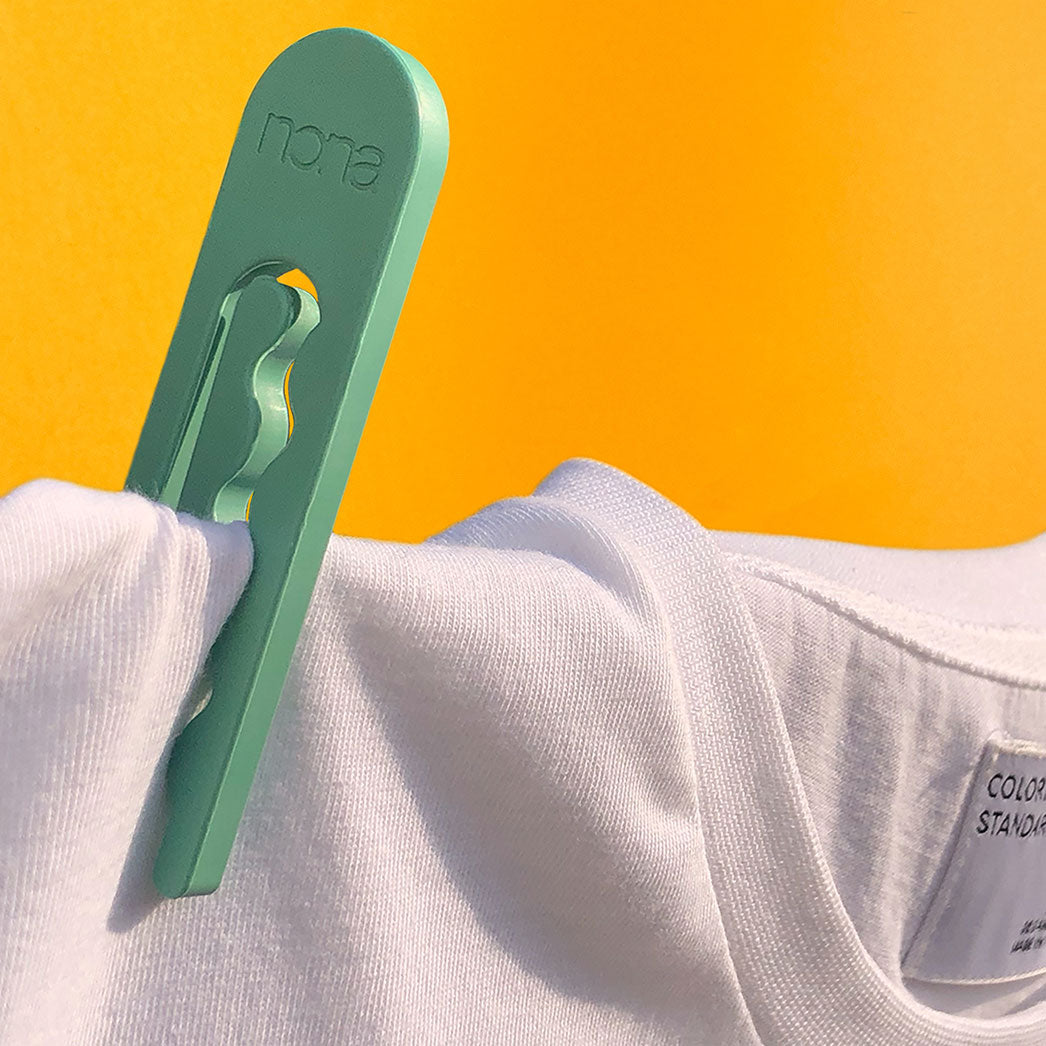Clothespins Made from Recycled Ocean Plastic

Have you ever wished for a better version of something and then felt over the moon to find exactly what you were looking for? That's what happened when we found NONA clothespins!
Theirs are a huge upgrade from traditional clothespins that easily break, rust or grow moldy. On top of that, they're made from diverted ocean plastic. ♻️
On Instagram we shared a Q&A with the UK-based founder of NONA, Alex Theodorou. Below you'll find the extended version, which includes exclusive information about projects in the pipeline at NONA. You heard it here first!
🌊 Celsious: NONA is an acronym for 'No Oceans, No Air.' Where does your passion for the ocean and its inhabitants stem from?
Alex Theodorou: The Amazon rainforest is famously known as 'the lungs of the planet' and whilst protecting our rainforests is critically important, the realisation scientists estimate that between 50 - 80% of oxygen production on earth actually comes from the ocean was a huge wake-up call for me.
As humans, we tend to focus on what happens on land, but it’s clear the symbiotic nature of the biosphere we live within means we need to protect every aspect of it. We do, after all, live on a water planet!
🌊 Why did you choose to tackle discarded fishing nets, as opposed to other forms of plastic waste?
All plastic entering our ocean is a problem. 12 million metric tons of it end up there every year: that’s the equivalent of emptying a rubbish truck into the ocean every minute of every day. Of that an estimated 640,000 metric tons are abandoned, lost or discarded fishing fishing gear, which once in the ocean become what is known as 'ghost nets.'
These ghost nets continue to catch, maim and kill fish, birds and mammals. By reimbursing fishing communities for their retired fishing gear, a circular economy which prevents this material from entering the environment is being sustained.

🌊 Are fisherman’s nets predominantly green? What else can you tell us about fishing gear that might not be commonly known?
Yes, fishing nets do tend to be green or blue, and some ropes can be orange. We actually use recycled fishing ropes for the manufacture of NONAs because polypropylene (rPP) has the right material qualities. Nets tend to be made from High Density Polyethylene (rHDPE) which goes off to produce other products, so nothing is wasted.
Most fishing gear is lost as a result of snagging or rough seas. Through our 1% for the Planet membership we support a UK-based not-for-profit organisation of volunteer divers that dedicate their time to retrieving, and often returning nets that have become lost at sea.
🌊 How many design iterations did you go through before launching on Kickstarter?
Loads for such a simple product! We’ll be launching our new product on Kickstarter later this year (you heard it hear first), so watch this space!
🌊 When comparing laundry habits in the UK and US, do you see any differences? Is there anything that you think we could learn from each other?
I guess we line dry a fair amount more, which is odd considering huge parts of the US have much better weather than the UK! It was particularly strange for us to learn about the 'Right to Dry' movement in the US.
We love the passion and uncompromising attention to detail that US-based companies like Celsious bring to the laundry space: thoroughly questioning the status quo, putting the environment first, and always striving to do things better.

Such kind words from our like-minded friends across the pond. 🙏🏾 Head to our Instagram to watch their process video and get your 'forever set' of NONA clothespins from our shop.
**
Interview by Mutia Adisoma
Photo of full set by Gerald Riedler
All other photos courtesy of NONA
